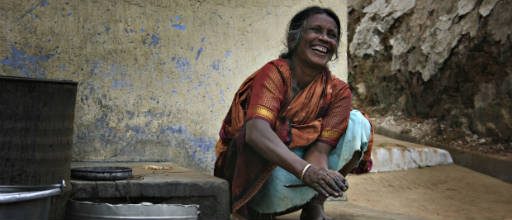
Detecting and Managing Chronic Kidney Diseases (CKDs) early the key, say nephrologists
Around 600 million people worldwide have some form of kidney damage. Chronic Kidney Disease (CKD), predicted to increase by 17% over the next decade, is now recognised as global public health issue. If detected early and managed appropriately, the deterioration in kidney function can be slowed or even stopped - yet awareness of kidney diseases is still very low and many people underestimate the vital role their kidneys play.
Today is the ninth World Kidney Day, an annual day of global action jointly organized by the International Society of Nephrology (ISN) and the International Federation of Kidney Foundations (IFKF) along with national Societies including the Indian Society of Nephrology. World Kidney Day (WKD) is the most widely celebrated event focused on kidney health across the globe. Most of all, it is the yearly occasion to raise awareness about the dangers of kidney disease and to send a clear message to the general public and governments that CKD is common, harmful and treatable. The theme of WKD this year is kidney disease in the elderly.
While no statistics are available on the exact numbers of persons with CKD in India, surveys amongst adult population have shown a prevalence of 9-12%. Data from the CKD registry which was established in the year 2007 shows that of all people who present to nephrologists, only about 5% are above the age of 60. But this data is heavily biased by the fact that many elderly are not tested for CKD and even if they have it, they do not reach the nephrologists because of low priority in households where younger are more likely to receive medical care.
"It is an undeniable fact that CKD prevalence rises with age and where such surveys are done, the prevalence exceeds 40-50% amongst elderly. The Indian population pyramid is such that in any given cohort of CKD patients, only a minority will be elderly since they form a small part of general population," says Dr Vivekanand Jha, Executive director, The George Institute for Global Health, India.
Dr Jha, who is also the Secretary of the Indian Society of Nephrology added: "This will change as the Indian population ages because of change in population demographic secondary to increasing life expectancy. As other diseases that kill the young are better managed, CKDs will become more apparent in elderly. Elderly are also particularly vulnerable to minor insults on kidney such as dehydration, common over the counter medications such as pain killers and urinary obstruction."
Commonest causes of CKD among the elderly in India are diabetes and hypertension. A unique cause is obstruction due to prostate enlargement.
"The Indian Society of Nephrology strongly supports an advocacy approach for early detection of CKD so that its adverse effects can be prevented. This can be done using simple tests and cheap medicines. The approach does not change with age except to say that the appreciation of high prevalence of CKD amongst elderly should be appreciated by other specialties. We suggest that all medical specialties including those managing individuals with diabetes, hypertension and cardiovascular disease look for presence of CKD in all patients when they come to them, more so in all elderly. Early detection and prevention will lead not only to improved outcomes, better quality of life, but huge cost-savings on treatment" said Dr Jha.
Kidneys facts
Kidneys age, just like you
About 1 in 10 people have some degree of CKD. Kidney disease can affect people of all ages and origins. Although CKD can occur at any age, it becomes more common with increasing age. After the age of 40, kidney filtration begins to fall by approximately 1% per year.
On top of the natural aging of the kidneys, many conditions which damage the kidneys are more common in older people including diabetes, high blood pressure and heart disease. This is important because CKD increases the risk of heart attack and stroke, and in some cases can progress to kidney failure requiring dialysis or transplantation.
On World Kidney Day, have a glass of water
On World Kidney Day, the whole civil society, governments, health professionals and patients around the globe are invited to start their day with a glass of water and to encourage their families, friends and co-worker to do the same.
This symbolic gesture brings a powerful connection with a common and simple act to get everyone to think about their kidneys on March 13. Water may protect your kidneys, however there is no scientific statement behind this idea since there is no firm evidence that drinking water lowers the risk for CKD.


